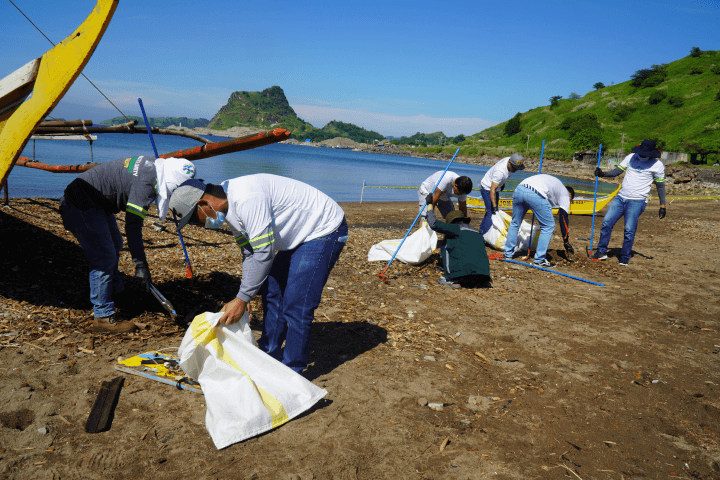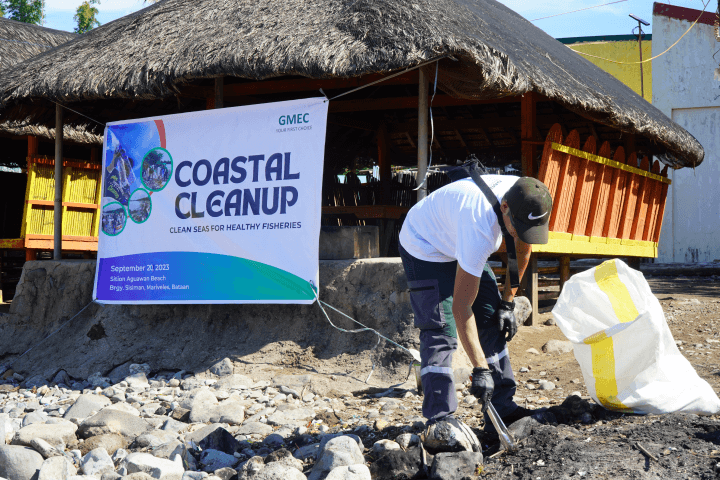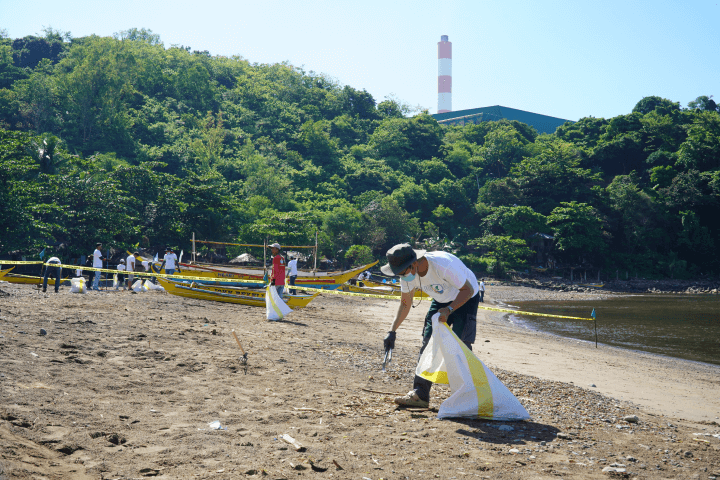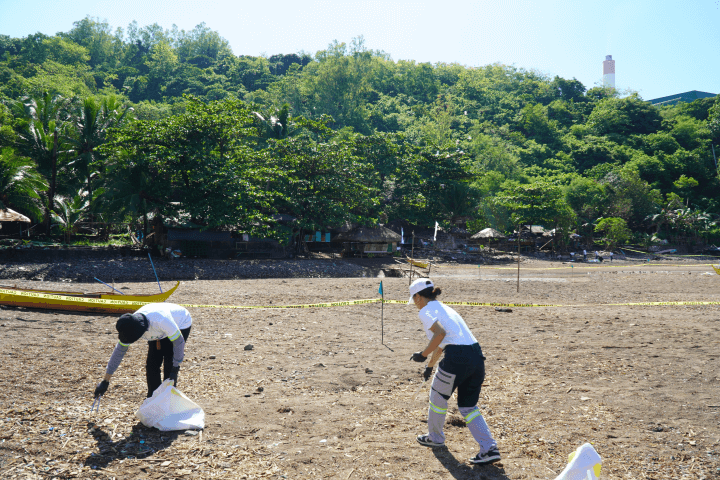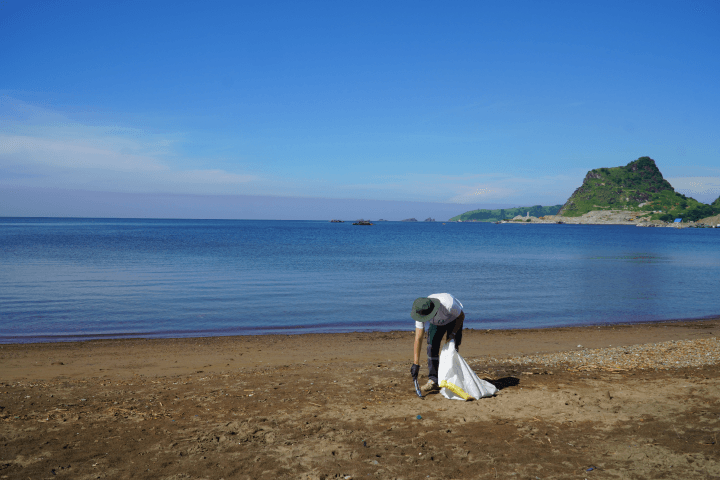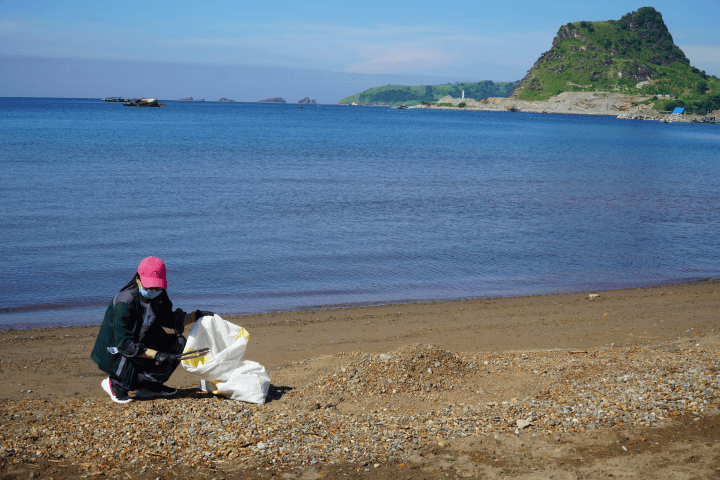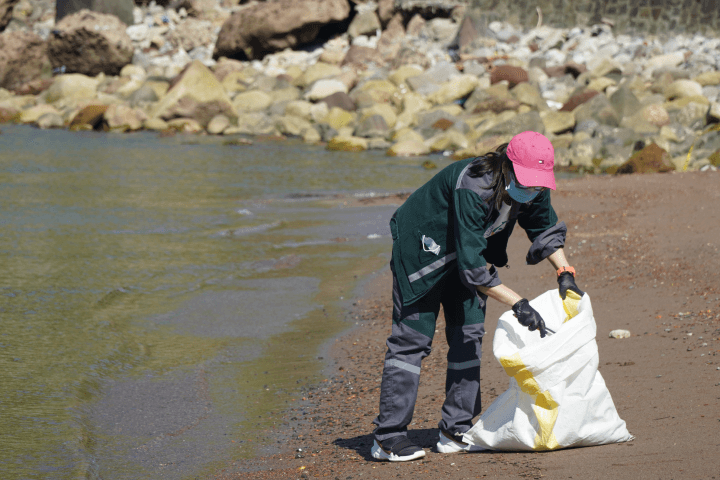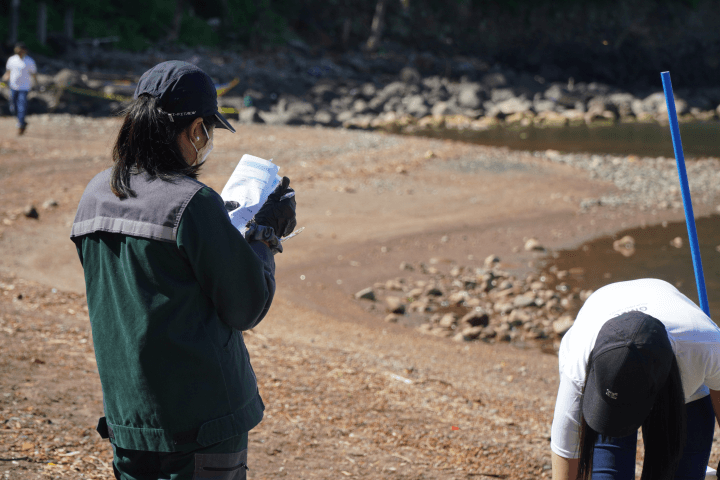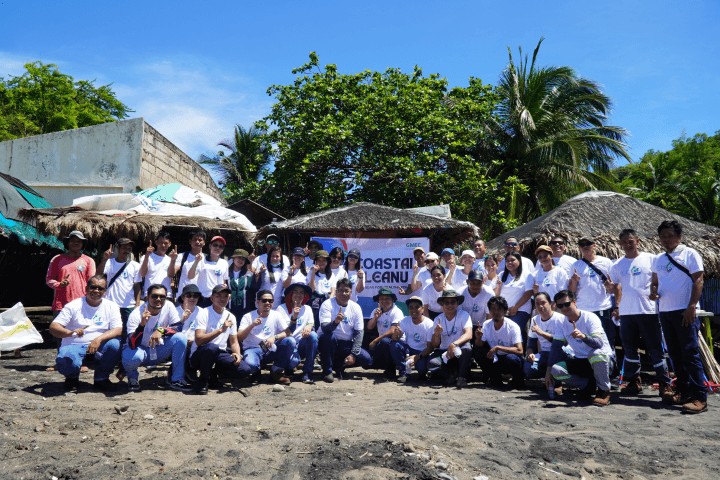
International Coastal Cleanup (ICC) Month falls in September, hence together with numerous volunteer organizations and companies all around the globe, GNPower Mariveles Energy Center Ltd. Co. (GMEC) in coordination with Provincial Government Environmental Resources Office (PGENRO) supported the annual marine conservation event with a beach cleanup drive held at Sitio Aguawan Beach, Sisiman, Mariveles, Bataan last September 20.
The beach cleanup aimed to strengthen the company’s flagship Corporate Social Responsibility program called P.R.O.G.R.E.S.S., under its “P” or Protect Marine Life arm.
P.R.O.G.R.E.S.S. stands for Protect marine life, Reforest land, Optimize wealth from waste, Generate livelihood skills and income, Rehabilitate social infrastructure, Elevate educational opportunities, Safeguard quality health access, and Strengthen disaster resiliency. Through P.R.O.G.R.E.S.S., GMEC commits to continually co-create positive change, shared value, and sustainable social and environmental development to ultimately define energy for progress.
Led by GMEC CSR Program Manager Joseph Chavez, a total of 42 employee volunteers collected around 74 sacks of trash, plastics, organic waste, and other aquatic debris turned over to PGENRO for proper segregation and classification of trash.
“Activities such as this not only amplify our Company’s commitment to improve the quality of the environment and the community, but it also shows the dedication of our employees to answer the call for nature conservation,” Chavez said.
According to study of Global Alliance for Incinerator Alternatives, the Philippines is one of the world’s worst offenders on marine plastic pollution, with 0.28 – 0.75 million tonnes per year of plastic entering to oceans from coastal areas in Manila Bay. Of the total coastline of the Bay, 142 kilometers are in Central Luzon with Bataan alone having over 77 kilometers of coastline which is part of the Bay, thus, making it more impactful to create programs encompassing the nurturing of marine life.
PGENRO officers Mistylyn Gutierrez, Community Development Assistant, and Jaira Manalili, Environmental Management Specialist discussed how plastic pollution has become prevalent throughout the Philippines’ seas and waterways. Furthermore, they stated that because the country is an archipelago, its shores are more prone to plastic rubbish, thus a strong collaborative effort from all stakeholders is important to mitigate this problem.
“Ingested plastic debris is one of the main causes of marine animal death in recent years,” Gutierrez said. “In one of our shore watches, we found a dead fish on the sand. And when we opened it to check its stomach, we confirmed what we anticipated, it was filled with plastic bottle caps and straws.”
Meanwhile, Manalili explained how to fill up the Volunteer Ocean Trash Data Form, where information about the trash collected is recorded for reporting to Ocean Conservancy, the US-based non-profit organization responsible for the ICC.
“As a beach lover, I am inspired to join coastal cleanups because I believe that everyone has a role to play in protecting our planet. Coastal cleanups are a great way to make a difference in our community and help to keep our oceans and beaches clean,” said GMEC volunteer Darren Masangkay. “I am excited
to be a part of the coastal cleanup movement and I encourage everyone to get involved. Even if you can only spare an hour or two, your help will make a difference.”
“I am not fond of doing any kind of volunteer work, but coastal cleaning caught my attention. The event inspired me to think that an ordinary person could help many people by preserving coastal areas,” another GMEC volunteer, Jazleen Quiroz, said.
Every plastic bottle and cap, every straw, every cigarette butt and candy wrapper taken away from the country’s shores can lead to a cleaner and healthier ocean. GMEC believes that even small actions can make a big difference when done together as the effect of these actions multiplies exponentially across the country.
The International Coastal Cleanup (ICC) is a yearly event conducted in 70 to 100 countries. It began in 1986 and the Philippines has been one of its strongest supporters since 1994.
